Note: This is the brand new release of Veeam backup and replication v5 which was just release last month. You can check out the product web page here. I’am using the following build veeam_backup_5.0.0.179_x64. Before beginning please download and install from the Microsoft website KB968930 Without this patch we can not install the Veeam powershell option as you will see in the following steps.
1. Double click the setup exe for your flavour of operating system, x86 or x64
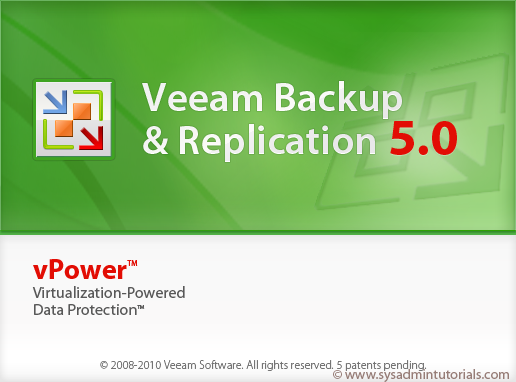
2. The installation wizard will begin. Veeam suggests a minimum of 4 cpu’s or cores, as my virtual machine server only has 2 cpu’s I’am presented with the following warning. If your system contains 4 or more cpu’s you will not see this warning and can continue to step 3. Click Yes.
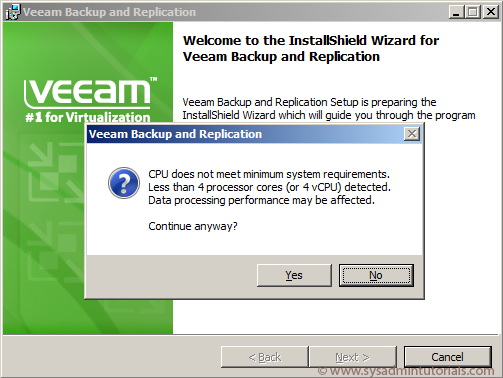
3. Welcome message for Veeam Backup and Replication Setup. Click Next.
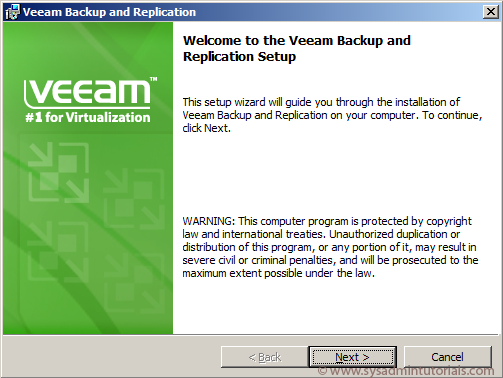
4. Select I accept for the License Agreement and click Next.
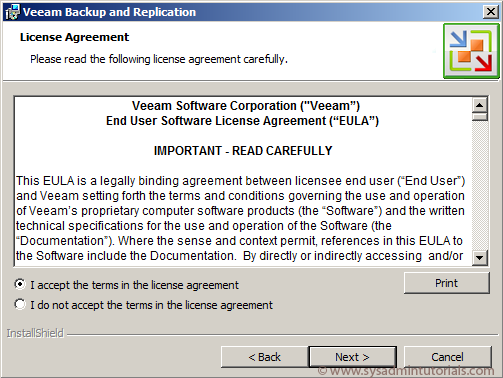
5. The install wizard now prompts you for your Veeam license file.
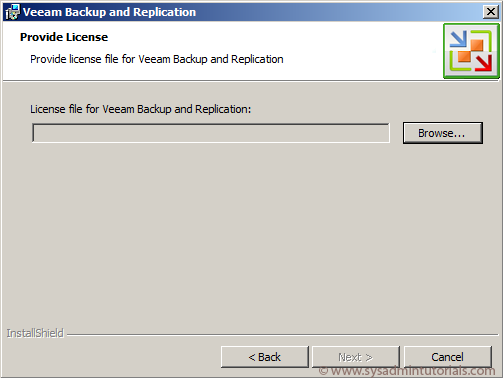
6. Click Browse and select your Veeam license key file that you received when you purchased the product. Or if you are trialing the product you would of received the license file in your email.
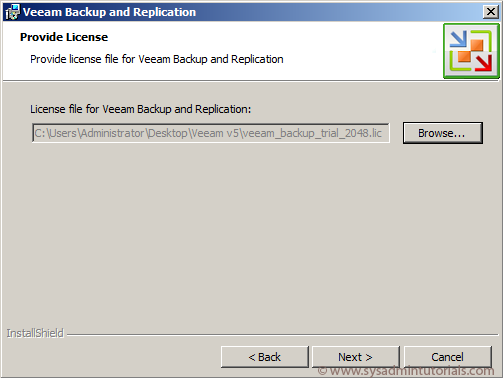
7. Enable the PowerShell Snap-In and click Next. If you receive an error about needing to install Microsoft Patch KB968930, please follow the link at the beginning of this page under Note.
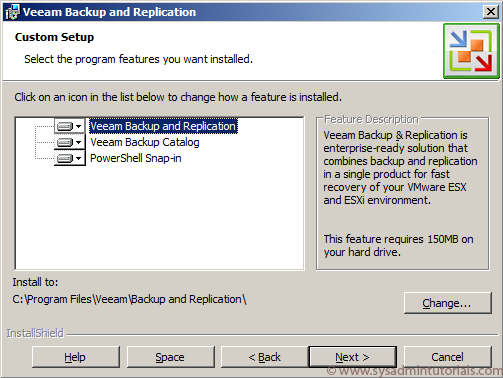
8. I will select to create a new SQL Server Instance for this installation, however if you have an existing SQL server that you would like to use, simply select the second option and fill in all the relevant information according to your database setup.
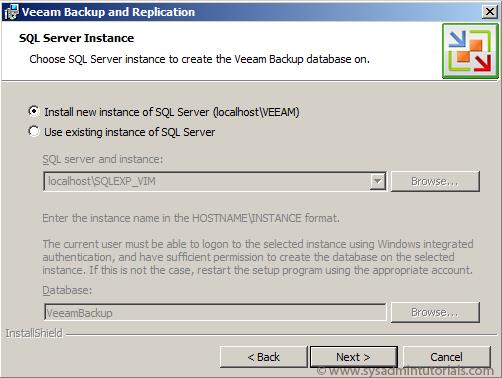
9. As I have a basic lab setup I will use the administrator account for the service settings. However I recommend that you create a dedicated Veeam service account. Enter in the username and password. Verify that the suggested port is not in use, otherwise change the port number. Click Next.
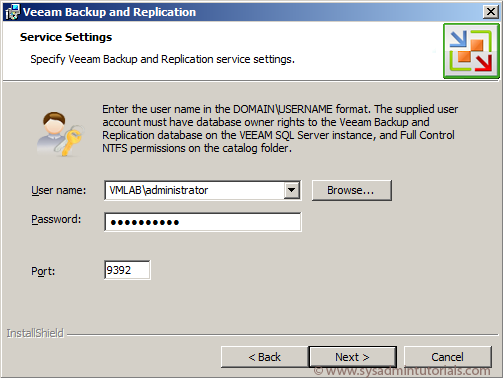
10. Select the location for both the Guest File System Catalog and vPower NFS Root Folder. Veeam recommend you have 100GB of free disk space available for recovered Virtual Machines. Click Next.
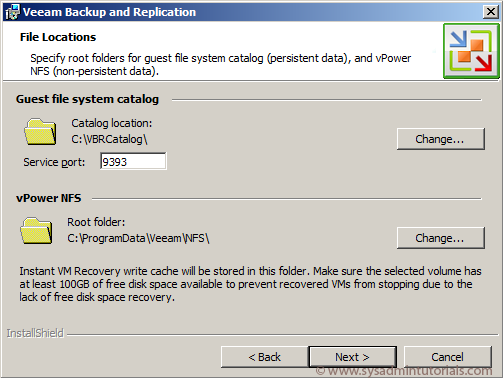
11. Click Install to begin the installation.
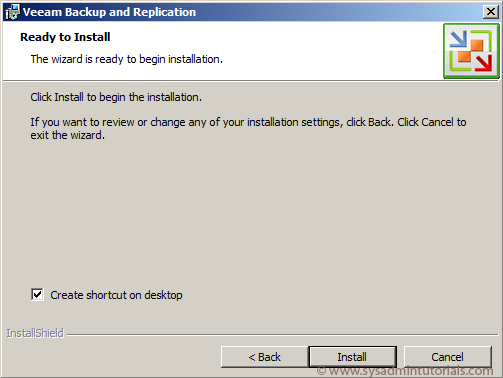
12. After a few minutes the installation will be complete. Click Finish.
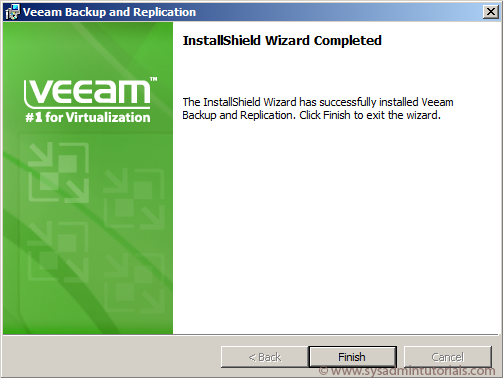
Disclaimer:
All the tutorials included on this site are performed in a lab environment to simulate a real world production scenario. As everything is done to provide the most accurate steps to date, we take no responsibility if you implement any of these steps in a production environment.